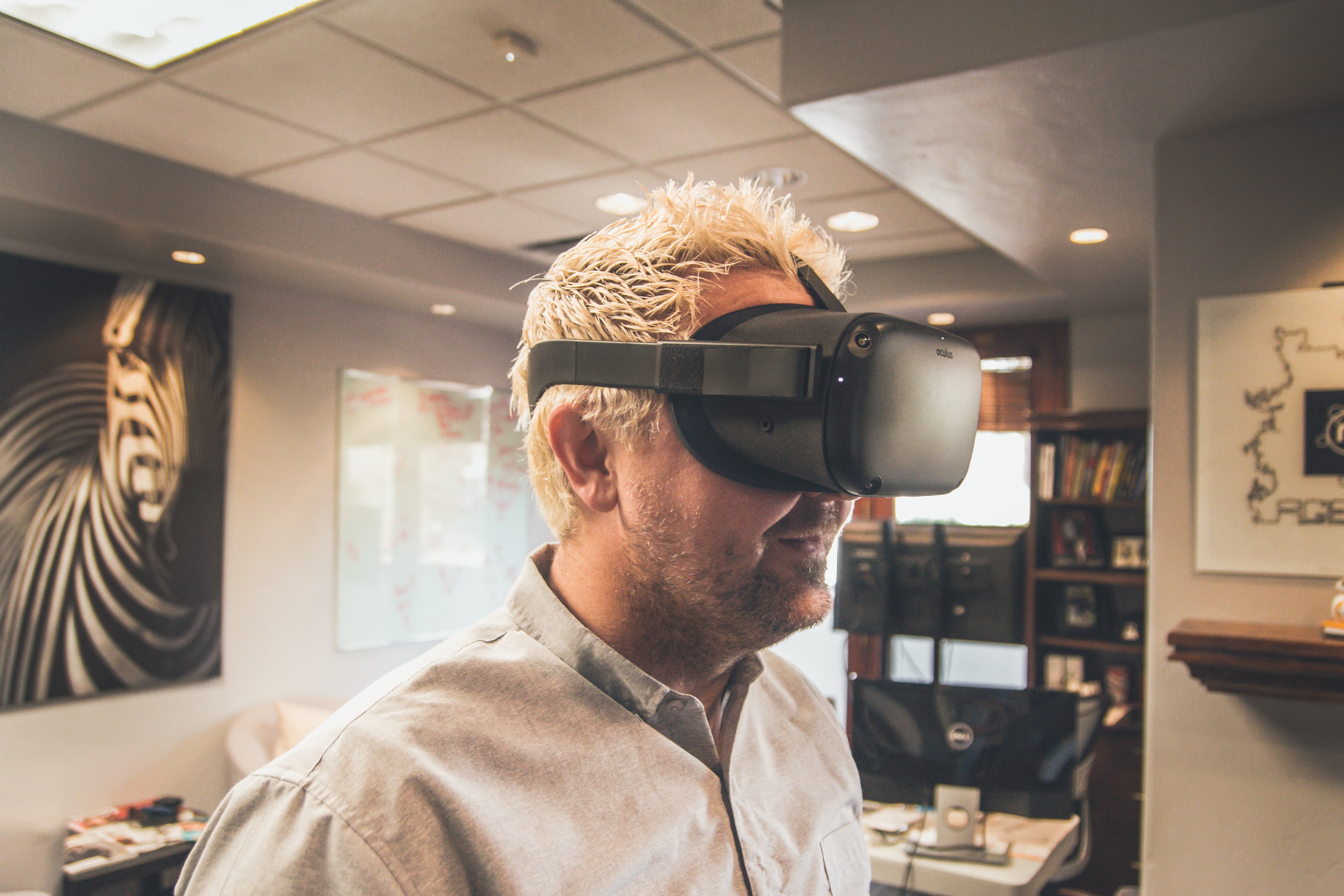Virtual Reality
Virtual Reality Assisted Therapy Project
Led by Cardiff University and supported by Accelerate, part-funded by the European Regional Development Fund (ERDF), the VR (virtual reality) project is a patient-focused technology initiative which will:
Help patients on long waiting lists for neurological and/or musculoskeletal therapy by providing them access to VR therapy remotely.
Provide an intelligent cost-effective assessment tool that can be used in the primary care setting for affordable home-based self-management.
Reduce the knock-on effect for waiting times due to Covid-19 for the NHS.

Programme Summary
The Sensor Physiotherapy Intervention (SPIN) Research group at Cardiff University have been conducting research around the use of technologies such as VR on physiotherapy. Specifically investigating important motor control strategies related to musculoskeletal conditions, with a particular focus on evaluating whether the novel VR based biomechanics can help to ameliorate these conditions. As part of this research, the team have a novel targeted-biofeedback application in a pilot project that showed how targeted-biofeedback motivated subjects to perform a such functional physiotherapy activity by using a biomechanically constrained strategy. These findings provide the under-pinning research to enable the development of the Physiotherapy Intelligent Virtual Reality System (PIVRS).
In the current project, the team from the School of Healthcare Sciences at Cardiff University collaborating with HexTransforma Healthcare to progress a prototype PIVRS to provide a novel approach to monitor and guide physiotherapy treatment selection, progression and performance through feedback. PIVRS uses portable and affordable sensing technologies (gaming technologies and wearable sensors that are being validated biomechanically in the laboratory) in combination with VR based technologies.

Project Aims
- To have significant impact on both patient outcomes and the delivery of physiotherapy services.
- To address the impact COVID-19 has had on waiting lists for NHS and private healthcare and patient needs being unmet.
- To provide clinicians with the capability of monitoring patient adherence and performance of exercises.
- To increase in the capacity of healthcare professional to support other patients and ultimately increase the quality of care provided.
- To allow 90% of consultations to be done electronically, saving travel to clinic and having an environmental impact on the local area.
